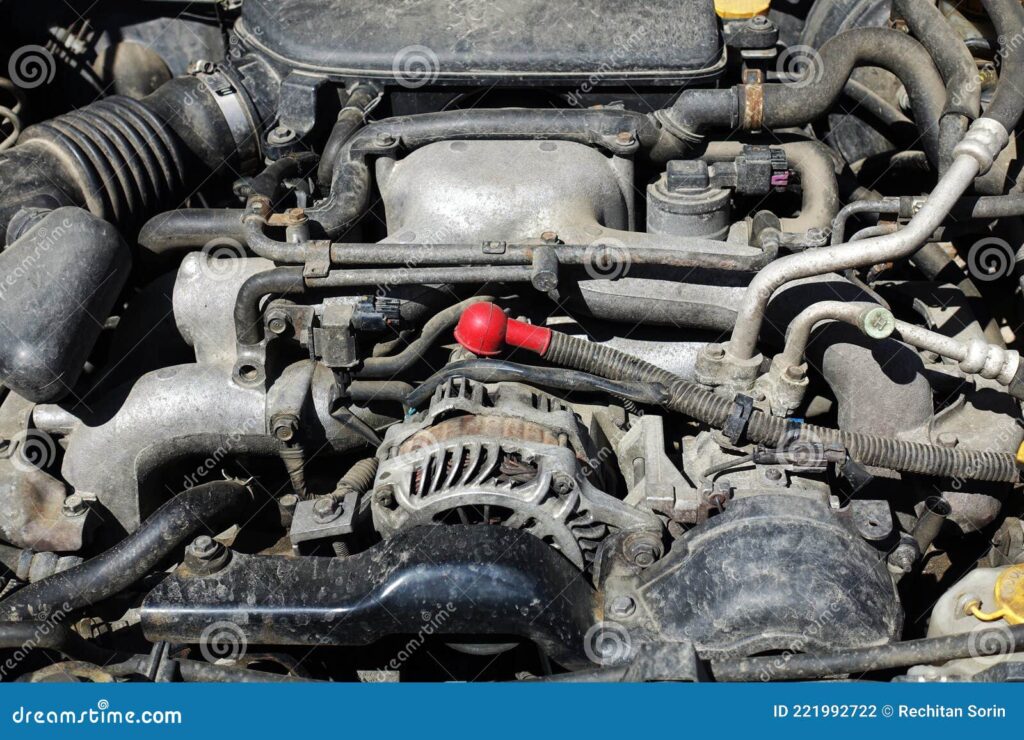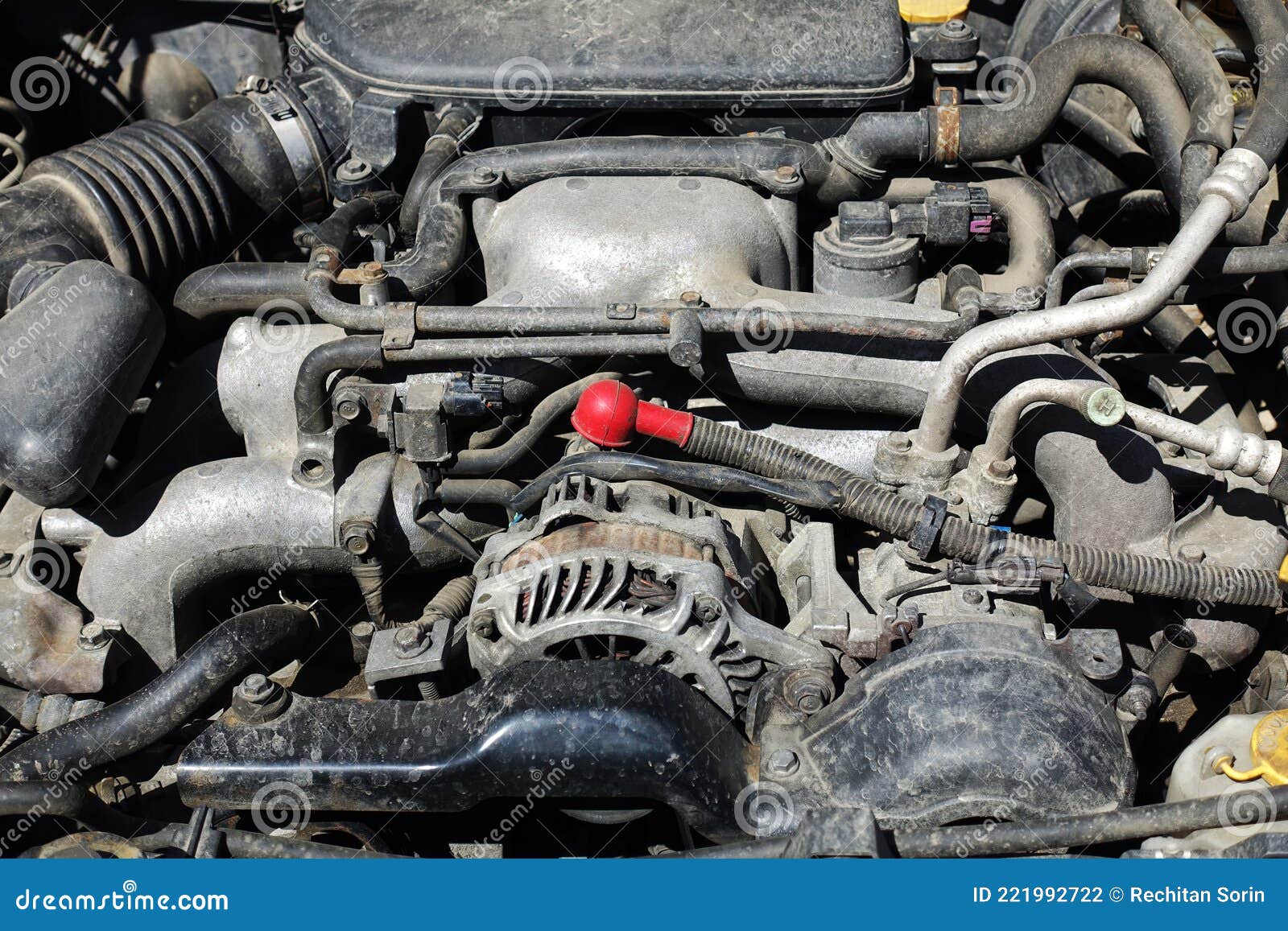
Battling the Red Plague: Preventing and Treating Car Engine Rust
Car engine rust is a silent killer, slowly corroding vital components and potentially leading to catastrophic failure. While modern cars boast improved rustproofing, the engine compartment remains vulnerable due to heat, moisture, and road grime. Understanding the causes, prevention methods, and treatment options for car engine rust is crucial for maintaining your vehicle’s longevity and performance.
Understanding Car Engine Rust
Rust, chemically known as iron oxide, forms when iron or steel is exposed to oxygen and moisture. The engine bay, with its complex network of metal parts, is a prime breeding ground for rust. Factors contributing to car engine rust include:
- Environmental Exposure: Rain, snow, and road salt accelerate rust formation.
- Heat Cycling: Constant temperature fluctuations within the engine bay create condensation, providing moisture for rust to thrive.
- Road Debris: Dirt, salt, and other contaminants kicked up from the road can damage protective coatings and expose bare metal to the elements.
- Leaking Fluids: Coolant, oil, and brake fluid leaks can create corrosive environments that promote rust.
- Age: Over time, protective coatings degrade, making older vehicles more susceptible to car engine rust.
Identifying Car Engine Rust
Early detection is key to preventing extensive damage. Common signs of car engine rust include:
- Visual Inspection: Look for reddish-brown discoloration on metal surfaces, especially around seams, joints, and fasteners.
- Flaking Paint or Coatings: Rust often forms beneath paint or protective coatings, causing them to bubble or flake.
- Rough Surfaces: Rusty metal feels rough and uneven to the touch.
- Unusual Noises: Rust can cause components to seize or bind, leading to squeaking, grinding, or rattling noises.
- Reduced Performance: In severe cases, car engine rust can affect engine performance, leading to reduced power, poor fuel economy, and misfires.
Preventing Car Engine Rust: A Proactive Approach
Prevention is always better than cure. Implementing these strategies can significantly reduce the risk of car engine rust:
- Regular Washing and Detailing: Regularly wash your car, including the undercarriage, to remove road salt and debris. Consider applying a protective wax or sealant to the paint.
- Engine Bay Cleaning: Periodically clean the engine bay with a mild degreaser and a soft brush. Avoid using high-pressure washers, as they can damage sensitive components. [See also: How to Safely Clean Your Car Engine]
- Rustproofing Sprays: Apply a rustproofing spray to vulnerable areas of the engine bay, such as exposed metal surfaces, seams, and joints. Choose a product specifically designed for automotive use.
- Fluid Leak Repair: Promptly repair any fluid leaks to prevent corrosive environments from forming.
- Undercoating: Consider applying an undercoating to the vehicle’s undercarriage for added protection against rust and corrosion.
- Garage Parking: Parking your car in a garage or covered area can shield it from the elements and reduce the risk of car engine rust.
- Regular Inspections: Regularly inspect your engine bay for signs of rust and address any issues promptly.
Treating Car Engine Rust: Restoration Techniques
If you discover car engine rust, prompt treatment is essential to prevent further damage. The appropriate treatment method depends on the severity of the rust:
Surface Rust Removal
For minor surface rust, the following steps can be effective:
- Cleaning: Thoroughly clean the affected area with a degreaser to remove dirt, grease, and loose rust particles.
- Sanding: Use sandpaper or a wire brush to remove the remaining rust. Start with a coarse grit and gradually move to a finer grit for a smooth finish.
- Rust Converter: Apply a rust converter to the treated area. Rust converters chemically convert rust into a stable, paintable surface.
- Priming: Apply a primer to the treated area to provide a protective base for the paint.
- Painting: Apply a topcoat of paint that matches the original color of the engine bay.
Advanced Rust Removal
For more severe rust, more aggressive methods may be required:
- Sandblasting: Sandblasting uses compressed air to propel abrasive particles against the rusted surface, effectively removing rust and corrosion. This method is best left to professionals, as it can damage surrounding components if not done properly.
- Chemical Rust Removal: Chemical rust removers contain acids that dissolve rust. These products can be effective but require careful handling and proper ventilation.
- Part Replacement: In extreme cases, heavily rusted components may need to be replaced entirely.
Specific Areas Prone to Car Engine Rust
Certain areas of the engine bay are more susceptible to car engine rust due to their design or exposure to the elements. These include:
- Exhaust Manifold: The exhaust manifold is exposed to extreme heat and condensation, making it prone to rust.
- Engine Block: The engine block itself can rust, especially around coolant passages and oil galleries.
- Suspension Components: Struts, springs, and control arms are exposed to road salt and debris, making them susceptible to rust.
- Brake Lines: Brake lines are critical for safe braking and can be severely compromised by rust.
- Fuel Lines: Rusted fuel lines can leak, posing a fire hazard.
- Fasteners and Connectors: Bolts, nuts, and electrical connectors can rust, making them difficult to remove or causing electrical problems.
The Long-Term Consequences of Neglecting Car Engine Rust
Ignoring car engine rust can lead to a cascade of problems, including:
- Structural Weakness: Rust weakens metal components, compromising their structural integrity.
- Component Failure: Rusted components can fail, leading to costly repairs or even accidents.
- Reduced Vehicle Value: Rust significantly reduces the resale value of a vehicle.
- Safety Hazards: Rusted brake lines or suspension components can pose a serious safety hazard.
- Engine Damage: In severe cases, car engine rust can lead to engine damage, requiring a complete engine rebuild or replacement.
Conclusion: Protecting Your Investment
Car engine rust is a common but preventable problem. By understanding the causes, implementing preventive measures, and addressing rust promptly, you can protect your investment and ensure your vehicle’s longevity and safety. Regular maintenance, careful cleaning, and proactive rustproofing are essential for keeping your engine bay rust-free and your car running smoothly for years to come. Don’t let the red plague claim your engine – take action today to combat car engine rust.

